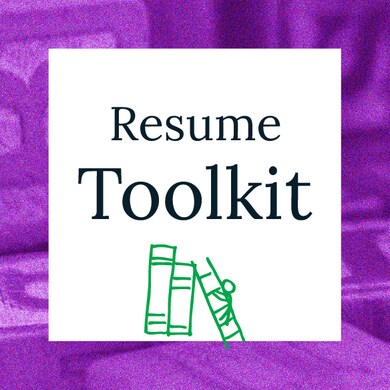How to Improve Your Resume for a Career in Social Justice in 4 Easy Steps

A study done by the Harvard Business Review found that 9 out of 10 people are willing to earn less money to do more meaningful work. They also reported that only 1 in 20 respondents rated their current jobs as providing the most meaningful work they could imagine having.
This job dissatisfaction is clearly exemplified by The Great Resignation in white-collar jobs to the rise of the Labor Movement in blue- and pink-collar work. In a present that constantly reminds us of the formidable social, economic, and environmental challenges that we face, it’s no wonder that most of the workforce wants a job that directly impacts their communities and the world at large.
But, as a college student or recent graduate with a limited amount of work experience, how do you turn your passion for activism into a fulfilling career? Below, we highlight four easy ways to punch up your resume to land a meaningful career in social justice.
1. Tailor Your Resume to the Job Posting
Now, we get it. Editing your resume for every position you apply to can be tedious and draining. However, a job in social justice requires passion and precision. Nothing screams disinterest more clearly than a resume that does not fit the job description.
What if the job you’re applying to has a confusing job description, or you don’t have time to identify keywords? In that case, you can always run it through a word cloud generator to pinpoint keywords and phrases to add to your resume. Once you’re done editing, run your resume through the same word generator to see if your job description’s keywords match up.
2. Highlight All of Your Relevant Experiences
No reasonable employer expects you to have 10 years of professional experience as a recent college grad. However, you can highlight plenty of experiences when applying for a job in social justice.
Have you held a part- or full-time job while in college? In your customer service job, have you ever had to deescalate a tense situation between you and a customer? It's very probable that you already have the transferable skills that employers are looking for in a candidate, so let's discover what those are and highlight them. Here are a few ideas to explore as you fill out your resume.
Leadership roles: Have you used your leadership role to create opportunities for people who are often marginalized?
Volunteer work: Did you recently dedicate your time to rolling up your sleeves to address a community need?
Speak another language: Can you think of a time where you used your multilingual skills to bring in and elevates voices or perspectives that normally wouldn't be heard?
Academic work published: Did you publish or assist in publishing academic work that shed light on inequities or potential solutions on how to create more diverse and inclusive spaces?
All these situations offer real, transferable skills that show you work well with a team, can work under pressure, and exercise empathy and patience. If you have a moment, download our Resume Tool Kit and reflect on your experiences and identify work you feel proud of.

Resume Toolkit
3. Quantify Your Outcomes Where You Can
Numbers don’t lie. If you have grown the audience for your social justice Instagram or Tik Tok account, that is an invaluable skill set for any organization that wants successful outreach and engagement. Or maybe you have done boots-on-the-ground organization, such as gathering 20 supply kits for your town’s homeless population or have made 30 calls a day for a local political activist.
These are just a few examples to get you thinking about where you can quantify the impactful work you’ve already done.
4. Reach Out to a Trusted Mentor for Proofreading
If you don’t have enough time for a mentor to proofread your social justice resume, you always proofread your own resume. Apps like Grammarly can help you catch any inconsistencies and help you edit more objectively.
But, objective feedback from a trusted friend or mentor can help you articulate your strengths, catch any inconsistencies and give you invaluable professional advice.
To get started with crafting your social justice resume, download these resume samples or this resume 101 guide to help you illustrate your unique experiences and worldview.



